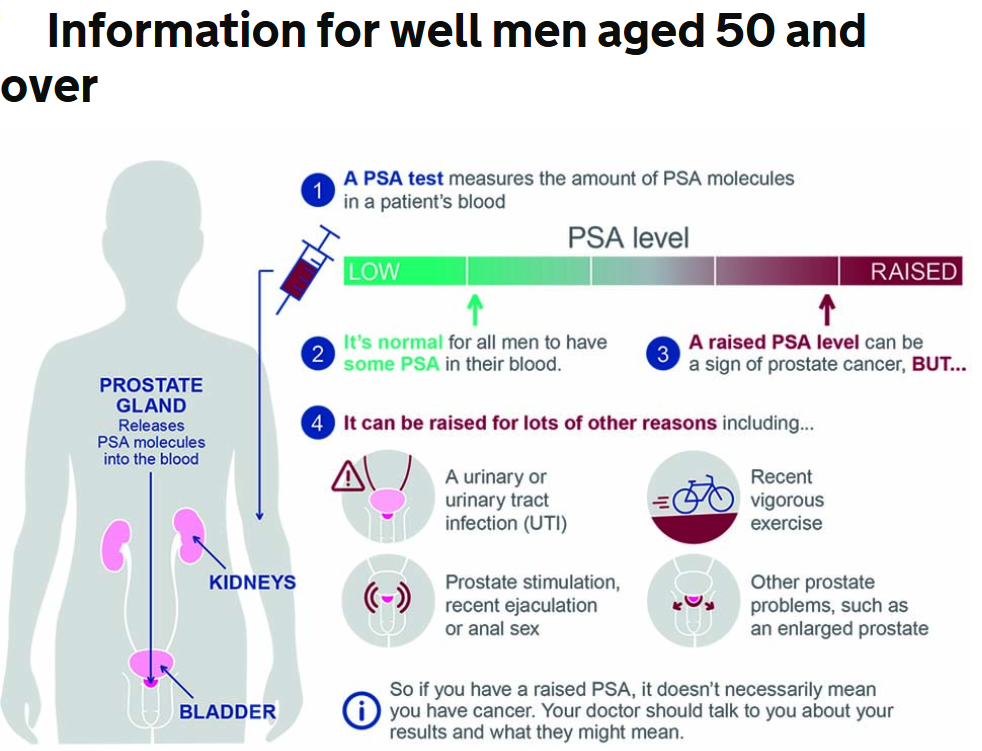Limitations of the PSA test
Some of the PSA test's limitations are as follows (1):
- the PSA test is not diagnostic: those with an elevated PSA level may require further investigation, possibly a TRUS-guided prostate biopsy and histology to confirm the presence of prostate cancer
- PSA is not tumour specific in the prostate. PSA levels can increase due to a number of other factors:
- BPE (benign prostatic enlargement)
- older age – PSA levels normally increase with age
- prostatitis – infection or inflammation of the prostate gland
- ejaculation – may increase PSA levels for a short time
- lower PSA levels can be influenced by factors such as drugs containing 5-alpha-reductase inhibitors (such as finasteride or dutasteride), aspirin, statin, thiazide diuretics
- obese men also have lower levels of PSA
- the PSA test may give false-positive results. A man may have an elevated PSA level but have no cancer. About 75 out of every 100 men who have an elevated PSA level have a false-positive result
- the PSA test result may not be elevated and provide false reassurance. One study has shown that approximately 15% (1 in 7) of all men with a ‘normal’ PSA level may have prostate cancer, and 2% (1 in 50) will have high-grade cancer, although it is not known how many of these would have become clinically evident in a man’s lifetime
- due to the poor sensitivity and specificity of the PSA test
- a one-off test is therefore not reliable enough to provide reassurance
- the PSA test may lead to the identification of prostate cancers which might not have become clinically significant in the man’s lifetime
- a single PSA test will not distinguish between aggressive tumours which are at an early stage but will develop quickly and those which are not, but further tests may provide valuable information
PHE have summarised the concerns re: using the test in a well man aged 50years or over (2):

Reference:
- 1. Prostate Cancer Risk Management Programme Information for primary care; PSA testing in asymptomatic men. Evidence document. NHS Cancer Screening Programmes, 2016
- 2. PHE (January 2020). Advising well men about the PSA test for prostate cancer: information for GPs.
Related pages
Create an account to add page annotations
Add information to this page that would be handy to have on hand during a consultation, such as a web address or phone number. This information will always be displayed when you visit this page